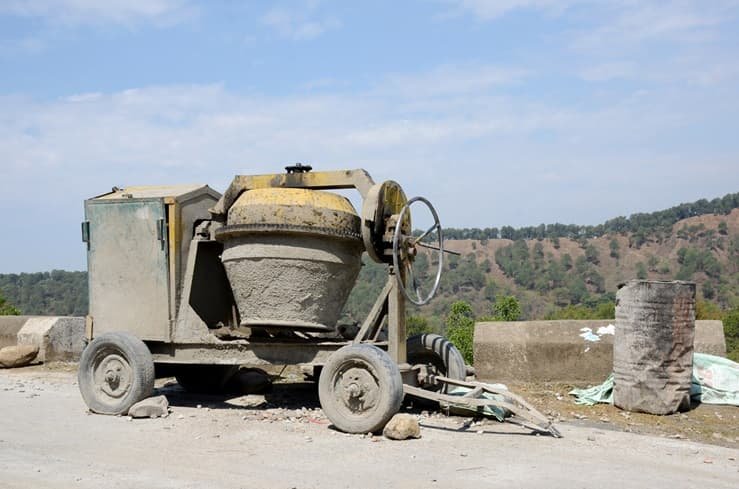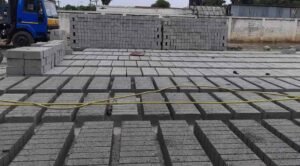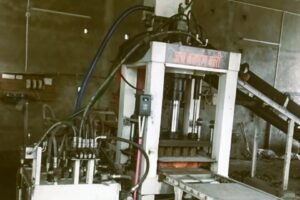Table of Contents
Introduction
In the world of construction, efficiency and precision are paramount, and when it comes to concrete mixing, cement mixer machines play a pivotal role. These robust devices have evolved over time, offering a variety of types catering to different needs. In this comprehensive guide, we delve into the main three types of cement mixer machines, their uses, the inherent advantages they bring to construction sites, and crucial factors to consider when choosing the right one.

Types of Cement Mixer Machines
1. Drum Mixers
Drum mixers are the workhorses of the construction industry. They come in both tilting and non-tilting varieties, each serving specific purposes. Tilting drum mixers are ideal for large construction projects, providing the flexibility to pour concrete directly into forms. On the other hand, non-tilting drum mixers are more suitable for smaller projects, offering a stable mixing platform.
2. Twin-Shaft Mixers
For projects demanding a higher degree of homogeneity in the concrete mix, twin-shaft mixers are the go-to choice. With two horizontal shafts rotating in opposite directions, they ensure thorough mixing, resulting in a uniform and high-quality concrete mix. This makes them a preferred option for projects where consistency is key.
3. Vertical Axis Mixers
Vertical axis mixers are compact and efficient, making them suitable for projects with space constraints. They employ a vertical mixing mechanism, ensuring a consistent blend of materials. This type is particularly favored in urban construction sites where limited space necessitates a smaller footprint.
Uses of Cement Mixer Machines
Cement mixer machines find application in a myriad of construction projects, ranging from residential buildings to large-scale infrastructure development. Their versatile nature makes them indispensable for tasks such as:
– Foundation Construction
When laying the groundwork for any structure, a reliable cement mixer ensures the creation of a stable and durable foundation.
– Road Construction
In road construction, where precision is crucial, cement mixers facilitate the production of high-quality concrete for pavements and curbs.
– Building Construction
From residential homes to towering skyscrapers, cement mixer machines are the backbone of building construction, ensuring the strength and integrity of the structure.
– Bridge Construction
Bridges demand concrete of the highest quality to withstand the test of time and environmental factors. Cement mixers play a vital role in crafting the concrete needed for robust bridge construction.
Advantages of Cement Mixer Machines
– Efficiency
Cement mixer machines streamline the concrete mixing process, significantly reducing the time required for construction projects.
– Cost-Effectiveness
By ensuring precise mixing and reducing waste, these machines contribute to cost savings, making them an economically sound choice.
– Consistency
The automated nature of cement mixer machines guarantees a consistent mix, eliminating variations in the concrete’s composition and enhancing overall structural integrity.
– Versatility
With different types catering to various project requirements, cement mixer machines showcase remarkable versatility, adapting to the diverse needs of construction.
How to Choose the Right Cement Mixer
Choosing the right cement mixer is pivotal for project success. Consider the following factors:
– Project Scale
For larger projects, opt for drum mixers, while smaller projects may benefit from the efficiency of twin-shaft or vertical axis mixers.
– Mixing Capacity
Evaluate the mixing capacity of the machine, ensuring it aligns with the volume of concrete required for your project.
– Mobility
Consider the mobility requirements of your project site. Drum mixers are mobile, but if space is a constraint, vertical axis mixers might be more suitable.
– Maintenance and Durability
Prioritize machines with low maintenance requirements and durable construction to ensure longevity and cost-effectiveness.
Conclusion
In conclusion, understanding the nuances of cement mixer machines is crucial for anyone involved in the construction industry. From the diverse types available to their myriad applications and the inherent advantages they offer, these machines are indispensable in creating robust structures. When choosing a cement mixer, meticulous consideration of project requirements ensures optimal results, reflecting the commitment to quality in construction.
Also see Concrete Blocks: A Comprehensive Guide to Business and Manufacturing in India in 2024.




Great blog! This article provides a clear and informative breakdown of cement mixer machines and their different types. The explanation of their uses and advantages makes it easier to understand which mixer suits specific construction needs. It’s especially helpful for anyone looking to invest in the right equipment. Keep up the great work! 👍